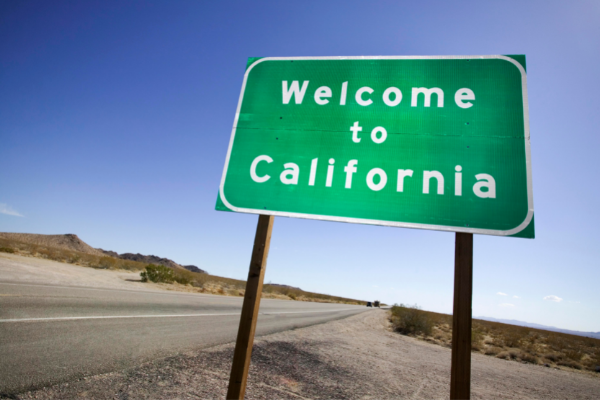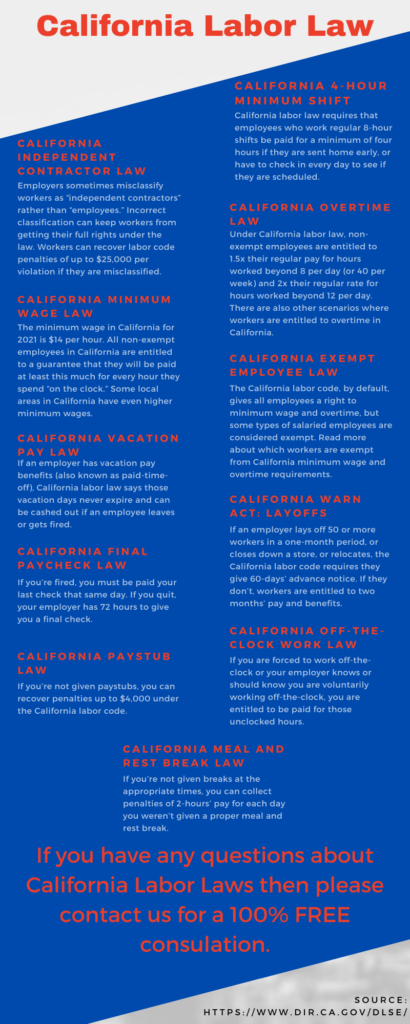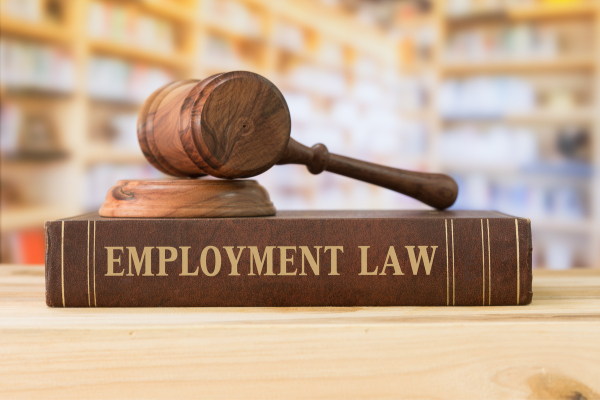Comprehensive Guide to the California Labor Board
The California Labor Board is a state agency that was created to enforce the rights of employees and employers. It does this by investigating complaints from both parties, enforcing any laws broken, and giving advice on what can be done to fix the situation. In this article, we will discuss what the Labor Board does, California Labor Laws enforced by the Labor Board, How to contact the Labor Board, How to file a complaint with the Labor Board, and other options that you can pursue besides filing a complaint with the Labor Board.
The Labor Board is located within the California Labor Commissioner’s office. The main goal of the California Labor Commissioner’s office and the labor board is to protect worker’s protected rights and ensure fair paid wages. We will be diving deeper into this topic in the next section and discuss how the Labor Commissioner protects employees by enforcing all labor and employment laws.

What does the California Labor Board do?
When you are having an issue with your employer, the Labor Board is a great place to start. They can help you figure out if what happened was actually illegal and how it should be handled. The California Labor Board investigates claims that they receive from employees or employers regarding issues such as minimum wage violations, overtime pay disputes, meal breaks not being given by the employer, unlawful termination of employment (wrongful dismissal), etc., among other things.
They are the go-to government body for labor standards enforcement and labor law. One of the main laws that they refer to when protecting employee rights is the Fair Employment and Housing Act. The Fair Employment and Housing Act does many important things and has laid the groundwork for California Labor Codes.
Once the Labor Board receives a complaint about labor and employment violations, it will send an investigator. If everything checks out on their end when investigating these complaints then someone from the Labor Commissioner’s office will inform both parties involved, in writing, about any California law that was broken. They will also give advice on how to fix them so that all employees are treated fairly moving forward.
|
Labor Laws enforced by the California Labor Board
There are a few main laws that the California Labor Board focuses on when it comes to protecting the rights of workers. We gathered all of this information about California labor laws here. We will discuss the main California labor laws and agencies below.
The Division of Labor Standards
The Division of Labor Standards Enforcement (DLSE) is part of the California Department of Industrial Relations. They are responsible for enforcing orders and laws related to workers’ compensation, safety standards in employment, prevailing wages on public works projects, minimum wage rules, and other employment regulations.
The Division of Labor Standards Enforcement (DLSE) offers free training seminars on a variety of topics including sexual harassment prevention, discrimination prevention, and wage and hour laws. Their goal is to educate California employees on their rights in the workplace, which can help prevent unfair practices from occurring at work.
If you’d like to learn more about the Division of Labor Standards Enforcement then please click here.
California Labor Code
The California Labor Code is a set of laws enforced by the Labor Commissioner’s Office. The Labor Code applies to all employees and employers in California. The laws cover minimum wage, overtime pay, sick leave, meal periods, rest breaks, and child labor rules for minors under 18 years old.
The Department of Industrial Relations is the state agency that enforces the California Wage Orders. The Labor Board, Department of Fair Employment, and Labor Commissioner’s Office are all part of the California Department of Industrial Relations. They all come together to enforce the labor code in California and ensure worker’s rights are protected.
If you’d like to learn more about the California Labor Code then please click here.
Fair Employment and Housing Act
The Fair Employment and Housing Act is also known as The Rumford Act. This law protects California citizens from discrimination, retaliation, sexual harassment in housing and employment.
Equal Pay Act Claim
The Equal Pay Act Claim is enforced by the California Labor Board and it ensures that men and women are paid equal wages for equal work. The law makes it illegal to pay employees at different rates because of their gender, race, or ethnicity in jobs where they perform substantially similar work under similar conditions.
Employers cannot use an employee’s prior salary to determine how much they are paid. They must base an employee’s salary on their skills and the requirements of the job.
If you’d like to learn more about the Equal Pay Act Claim then please click here.

What are some examples of unfair labor practices?
Here are some common unfair labor practices that violate labor and employment California law:
- An employer cannot discriminate against a worker because of their age, sex, ethnicity, national origin, race, age, or disability.
- Employers also can’t use threats to keep workers from joining the labor union. This includes telling employees that if they join the union, there will be no promotions and benefits will go down.
- Aside from discrimination, an employee is also protected from sexual harassment, retaliation, and other actions that make up a toxic work environment.
Employers cannot violate California labor laws or federal labor laws because they will be held liable for employee safety and rights in the workplace.

Can you be fired without reason in California?
There is no such thing as at-will employment in California. This means that you can’t be fired without a good reason, even if your boss doesn’t like you or think you do a bad job. There are some exceptions to this rule based on the type of position and duration of employment.
If an employer tries to terminate you from your job, then they must be able to prove that you were fired for a legal reason.
What is the labor law for lunch breaks in California?
California state law says that all employees must be given a 30-minute lunch break for every five hours worked. If you work more than ten hours then your employer owes you a third 10-minute rest break or a second 30-minute meal break.
What are the California labor laws on sick leave?
All employees in California receive paid sick days according to the law and can use them if they or their family members get ill or need medical care. Employers may not require that you find someone else to cover your shift before you go to the doctor or otherwise take time off.
Is it worth it to sue for wrongful termination?
There are a lot of factors that can affect whether you should sue for wrongful termination. First, it depends on what kind of job you have and how much money is at stake. If you were fired because your employer was trying to avoid paying commission or overtime then the amount might be worth pursuing in court.
Another factor to take into account is how difficult it will be for you to find a new job. If the termination means that your work experience is now significantly different from what other employers are looking for, then this may make finding another position very challenging.
Finally, employees must be able to provide solid evidence to prove that they were wrongfully terminated. The burden of proof is always on the employee so you have to make sure to have hard evidence such as documentation, recordings, witnesses, etc.
Where do I report unfair treatment at work?
The California Labor Board is responsible for dealing with unfair labor practices. Unfair treatment at work can include things like discrimination, harassment, and retaliation against a worker who has previously filed a complaint. These acts by employers are illegal and the employment
The first place you should file a complaint about labor violations within your employment is with an HR representative or with upper-level management.
If this doesn’t work or you experience wrongful termination then you can file a complaint with the California Labor Board. A labor board complaint will be your next best option because it will involve
You have to file your claim within six months of the incident being made aware to you or when it should have reasonably been apparent to you that there was an issue in your workplace. This also applies if someone else files on behalf of themselves and other employees affected by the same issues as well (class action). There are some exceptions where this time limit may not apply.
In addition, we want to stress again how important it is for you to document and gather as much evidence as you can to prove any claims or complaints you have formally made against your employer. You must also remember to file a complaint within the six-month period mentioned above or you might not receive any help from filing a complaint with the California labor commissioner.
How do I collect unpaid wages?
If you are an employee, this process is fairly straightforward. The Labor Board will investigate and if they find that your employer has failed to pay the amount owed or compensate you for all of your hours worked (or both), then there should be no problem in recovering these lost wages.
Click here to file an unpaid wages claim to the Labor Board: Unpaid Wage Claim
How to Contact the California Labor Board
The best way to contact the California Labor Board is by calling them. Unfortunately, it may take some time to get ahold of a Labor Board agent due to the high demand of filing a labor board complaint by employees throughout Los Angeles and other cities in California.
California Labor Board Phone Numbers
- Van Nuys Entertainment Labor Board Phone Number: (818) 901-5484
- Van Nuys Labor Board Phone Number: (818) 901-5315
- Sacramento Labor Board Phone Number: (916) 263-1811
- Stockton Labor Board Phone Number: (209) 948-7771
- Salinas Labor Board Phone Number: (831) 443-3041
- Santa Rosa Labor Board Phone Number: (707) 576-2362
- Redding Labor Board Phone Number: (530) 225-2655
- Santa Barbara Labor Board Phone Number: (805) 568-1222
- Los Angeles Labor Board Phone Number: (213) 620-6330
- Santa Ana Labor Board Phone Number: (714) 558-4910
- Long Beach Labor Board Phone Number: (562) 590-5048
- San Jose Labor Board Phone Number: (408) 277-1266
- Fresno Labor Board Phone Number: (559) 244-5340
- San Francisco Labor Board Phone Number: (415) 703-5300
- El Centro Labor Board Phone Number: (760) 353-0607
- San Diego Labor Board Phone Number: (619) 220-5451
- Bakersfield Labor Board Phone Number: (661) 587-3060
- San Bernardino Labor Board Phone Number: (909) 383-4334
- Oakland Labor Board Phone Number: (510) 285-2118
- Geneal Labor Board Phone Number: 1 (844) 522-6734
A labor board complaint can be filed at any of these numbers, but we suggest using the number that is closest to where you live. Your labor board complaint will be reviewed by that respective office. Every single labor board complaint that is filed will be investigated by the labor commissioner according to the Labor Code.
How to File A Complaint with the California Labor Board
Filing a complaint with the California labor board is pretty simple in theory, but it doesn’t always work out that employees hope it will. Once you get ahold of the agent by telephone to file a complaint, the impending investigation can take months, if not years.
You can also find the following information needed to file a complaint here.
How long does it take for the Labor Board to address my complaint?
How long does it take to file a labor board complaint? Unfortunately, that depends on how busy the Labor Commissioner is at any given time. There have been reports that claims can take years to resolve so it can be hard to put an exact timeframe on labor code violations investigations.
What other options do I have besides filing a complaint with the CA Labor Board?
There are several options available besides going to the California Labor Board. In some cases, it might be best to call your local employment law attorney before filing a claim with the State of California.
Most employees will seek out a Labor and Employment Attorney for help because they want their claims addressed as quickly and amicably as possible.
Click this link to schedule a consultation with an employment lawyer: Schedule

The Benefits of An Employment Attorney
In California, the Labor Board can only award back wages and interest on those owed wages.
The benefit of getting a lawyer early in your case is that you get legal advice about how to move forward with your claim. There are many reasons why this could be beneficial to an individual’s specific situation.
Is working with an employment lawyer a better route than the Labor Board?
If individuals have already tried contacting their employer or if they feel intimidated by their boss, filing a complaint through the state might not produce any results for them at all. An employment law attorney will help determine which option would benefit each person individually based on his/her unique circumstances. An employment attorney can also help walk an employee through the complaint process and give them legal advice about their situation.
An employment attorney can also produce results faster than the Labor Board since they are less busy than the Labor Board. The complaint process can be very lengthy depending on how busy the Labor Commissioner is.
Lastly, an experienced employment attorney can usually help you receive higher compensation than the Labor Board.
What exactly do employment lawyers do?
Employment lawyers can help you file a complaint and guide you through the process of filing your claim.
They will also be able to determine if it would benefit for their client to go up against his/her employer in court or with an administrative agency like the California Labor Board based on individual circumstances.
An employment attorney might even produce results faster than the Labor Board since the formal complaint process and investigation can take years. In the State of California, the labor code is broke often, which means there are many people trying to file a complaint with the Labor Commissioner.
The Labor Commissioner can only help so many employees with their unpaid wages, minimum wage theft, discrimination, harassment, and wrongful termination claims at a time, which is why an employment attorney is a great option as well.
Consult with an Employment Lawyer
Crosner Legal has many experienced lawyers on staff that are Labor Code experts. The attorney-client relationship is our number one priority and we want to make sure that all employees are properly represented. Crosner Legal has handled all kinds of labor code violation cases for employees such as:
- wage theft
- unpaid wages
- sexual harassment
- discrimination
- wrongful termination
- hour violations
- rest and lunch break violations
- overtime pay violations
If you need legal advice about labor code violations or help with filing a complaint then please feel free to reach out for a 100% FREE labor code and labor board consultation.
To schedule a consultation, please click here.
